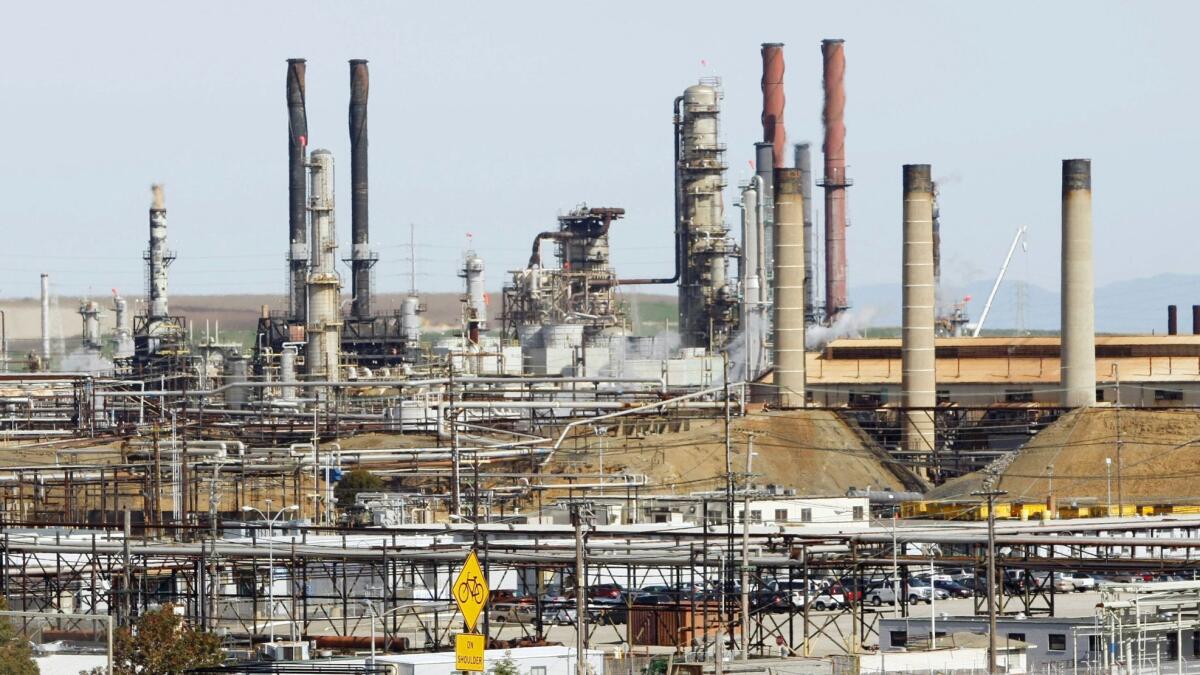Chevron to end regulators’ probes by upgrading refineries and doing environmental work

- Share via
Chevron Corp. has agreed to pay a nearly $3-million fine and spend $160 million on environmental improvements and upgrades of oil refineries to resolve allegations that it violated pollution laws, federal officials said Wednesday.
The U.S. Justice Department said the agreement ends investigations in California and three other states where Chevron’s refineries caught fire or released harmful chemicals. The settlement calls for it to spend $10 million on environmental projects in those states: California, Mississippi, Utah and Hawaii.
The San Ramon, Calif., company agreed to spend $150 million upgrading refineries throughout the country.
The Justice Department said the $2.95-million fine will resolve several regulatory investigations, including those into a 2013 explosion and fire in Pascagoula, Miss., that killed a Chevron worker and a 2012 fire at Chevron’s Richmond, Calif., facility that prompted 14,000 residents to be evacuated.
“As part of this settlement, Chevron U.S.A. Inc. has agreed to significant investments at its refineries to enhance the safety and reliability of operations,” company spokesman Braden Reddall said. “We believe these measures build on existing efforts to enhance safe practices at Chevron refineries.”
In 2013, Chevron paid $2 million in fines and restitution and pleaded no contest to six charges related to the Richmond fire, which sent thousands of people to hospitals, many complaining of respiratory problems. Chevron entered the plea to charges filed by the California attorney general’s office and the Contra Costa County district attorney’s office, including failing to correct deficiencies in equipment and failing to require the use of certain equipment to protect employees from potential harm.
It also agreed to spend $20 million on improving the Richmond facility to settle claims made by California regulators.
More to Read
Inside the business of entertainment
The Wide Shot brings you news, analysis and insights on everything from streaming wars to production — and what it all means for the future.
You may occasionally receive promotional content from the Los Angeles Times.










